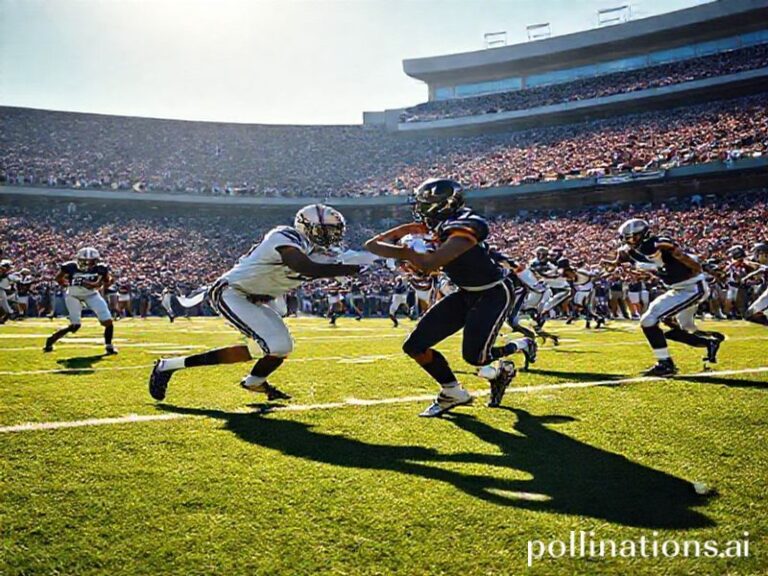The Slovenian Soap Opera: How One Man’s Dishwasher Tablet Diplomacy Explains Global Consumer Madness
Aldi Shopper Avoids Dishwasher Tablets There but Buys Them at Sainsbury’s Instead: The Geopolitics of Suds and Self-Deception
By the time you read this, somewhere in the post-industrial sprawl of northern England, a man named Gary—forty-something, fleece-clad, haunted by the memory of interest rates he once understood—has once again completed the weekly sacrament: Aldi for tinned tomatoes, Sainsbury’s for Finish Quantum. The ritual is so precise that satellites could set their clocks by it, yet the reasoning behind it remains as opaque as the foam in his sink. Gary insists Aldi’s own-brand tablets “leave a film,” a phrase that sounds like a rejected Bond title and carries roughly the same level of verifiable fact. Still, he persists, crossing a car-park DMZ with the solemnity of a UN peacekeeper, clutching two separate receipts like passports to conflicting realities.
To the wider world, this is trivia. To economists still licking their wounds after the last inflation report, it is data. Gary’s bifurcated basket is replicated from Liverpool to Lisbon, from Milwaukee to Manila: discount pantry staples in one bag, premium detergent in the other. Call it the Great Schism of Domestic Chore Choreography. Analysts at the OECD have even coined a term—“value vertigo”—to describe consumers who will cheerfully buy horse-meat-adjacent lasagne for 89¢ yet refuse to gamble on cut-price rinse aid. Somewhere in Davos, a slide deck is being updated.
The geopolitics are exquisite. Aldi’s tablets are manufactured in Slovenia, shipped through Antwerp, and priced like they’re doing you a favour. Sainsbury’s Finish comes from the same Slovenian factory, rides the same lorries, but is blessed by the holy markup of perceived British respectability. Somewhere on the A14, the two consignments pass in the night, identical molecules wearing different price tags like clandestine spies in trench coats. Gary, meanwhile, congratulates himself on “saving money” while spending an extra £4 a month to avoid spots on his wine glasses—glasses that once held supermarket Pinot before the world went mad.
Zoom out and the pattern repeats on every continent. In São Paulo, housekeepers buy rice at Atacadão but trek to Pão de Açúcar for Omo. In Seoul, a salaryman braves E-Mart for kimchi yet insists on imported Cascade pods from Costco. The choreography is global, the delusion bespoke. Each shopper believes they have gamed the system, when in truth the system has gamed them with the patience of a Bond villain who moonlights in behavioural economics.
The environmental ledger is equally farcical. Gary’s split-shopping doubles the plastic, doubles the diesel, doubles the existential guilt he drowns in more Pinot. Somewhere in the Pacific, an albatross chokes on a wrapper that began life as Gary’s “ethical” choice. The circle of life, sponsored by Procter & Gamble.
And still we persist, because surrendering the illusion of control would be more corrosive than any limescale. Better to pay triple for a lemon-scented placebo than confront the reality that none of us can scrub away the residue of late-stage capitalism. Gary will die—sooner than he thinks, if the cholesterol in Aldi’s frozen lasagne has anything to say about it—but the dishwasher tablets will outlast him, still locked in their hermetically sealed pods like time capsules of consumer anxiety.
Tonight, as Gary loads the machine with the precision of a nuclear technician, he pauses to admire the gleaming Sainsbury’s packet. He feels, briefly, like a man who has made a series of rational decisions. In the reflection of the stainless-steel door, the ghost of a Slovenian factory worker waves back. Neither of them is sure who got the better deal.







